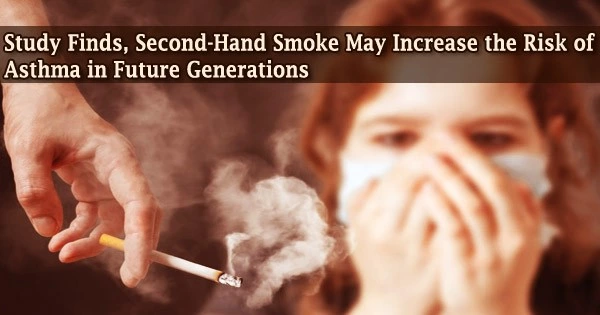According to a study that was just published in the European Respiratory Journal, fathers who were exposed to secondhand smoking as children have a higher risk of their children developing asthma.
The study, led by Mr. Jiacheng Liu and Dr. Dinh Bui of the University of Melbourne, also demonstrates that children’s risk of developing asthma is considerably higher if their father was exposed to second-hand smoke before starting to smoke.
According to the researchers, their data demonstrate how smoking can harm people’s health across multiple generations, not only the smokers’ children and grandkids.
The study was based on data from the Tasmanian Longitudinal Health Study (TAHS), led by University of Melbourne Professor Shyamali Dharmage.
TAHS began in 1968 and is one of the world’s largest and longest ongoing respiratory studies. In this study, 1689 Tasmanian-born children, their fathers, and their paternal grandparents were examined.
They matched information on whether the kids had asthma by the time they were seven years old with information on whether the fathers had parents who smoked when they were younger than 15 years old. They also contained information on whether the fathers were now smoking or had in the past.
This is where factors in our environment, such as tobacco smoke, interact with our genes to modify their expression. These changes can be inherited but may be partially reversible for each generation. It’s possible that tobacco smoke is creating epigenetic changes in the cells that will go on to produce sperm when boys grow up. These changes can then be passed on to their children.
Professor Shyamali Dharmage
Mr Liu said: “We found that the risk of non-allergic asthma in children increases by 59 per cent if their fathers were exposed to second-hand smoke in childhood, compared to children whose fathers were not exposed.”
“The risk was even higher, at 72 per cent, if the fathers were exposed to second-hand smoke and went on to smoke themselves.”
According to Dr. Bui, the results demonstrate how smoking can harm not just smokers but also their offspring and grandkids.
“For men who were exposed to second-hand smoke as children, our study suggests that they can still lower the risk they pass on to their own children, if they avoid smoking,” Dr. Bui said.
Professor Dharmage stated that although the exact mechanism by which this injury is transmitted down through generations is unknown, epigenetic modifications may play a role.
“This is where factors in our environment, such as tobacco smoke, interact with our genes to modify their expression. These changes can be inherited but may be partially reversible for each generation,” he said.
“It’s possible that tobacco smoke is creating epigenetic changes in the cells that will go on to produce sperm when boys grow up. These changes can then be passed on to their children.”
The researchers will now look at whether the higher risk of developing asthma lasts into adulthood and whether fathers who were around secondhand smoke as kids had any increased risk of developing allergies or other lung conditions in their offspring.





